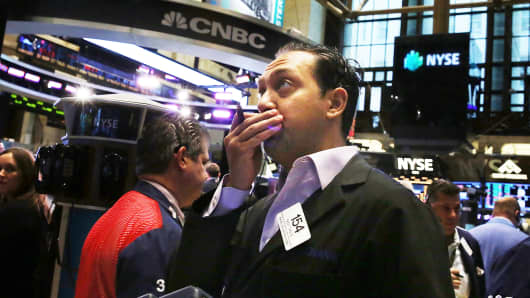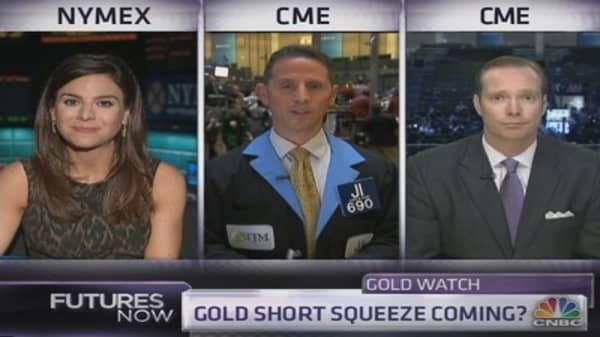(Read more: Allies draft plans for strikes against Syria)
He sees industrial manufacturing, consumer cyclical and financials as the top plays, along with small- and mid-cap technology names.
Indeed, the longer-term market tone remains barring any serious technical damage done to the major averages.
Piper Jaffray is sticking to its 1,850 year-end S&P 500 target—that's 13 percent upside from Tuesday's action—even as it concedes that a pullback is likely.
"The dog days of summer are here, and the market is experiencing some near-term weakness," Johnson said. "We continue to view this as a healthy correction within a well-established bull market, and note that this year's corrections have primarily been in time instead of price, so the current weakness may continue over the intermediate term."
In that case, investors should stay on their toes.
"You want to keep your exit strategy intact," said Quincy Krosby, chief market strategist at Prudential Annuities.
Syria's civil strife likely is going to provoke a U.S.-led military assault, and investors are taking notice.
The S&P 500 has surrendered 4 percent of its robust 2013 gains, and market experts are preparing for the downturn to intensify, possibly turning a routine pullback into a deeper correction that could continue through autumn.
"The significant prospect of official U.S.-led intervention against Syria following the suspicious use of chemical weapons against its population by the Assad regime is knocking the stuffing out of North African and Middle Eastern stock prices," said Andrew Wilkinson, chief market strategist at Miller Tabak.
While Syria is of only limited strategic importance to the U.S., turmoil in the region almost always echoes across financial markets.
Oil prices have had a volatile month and surged since late June. A safety play in gold has taken on its own life, with the price in bull market territory, while bond yields have backed off their highs.
(Read more: Get ready for a'massive interest rate shock' soon)
The Syria situation complicates things, though.
The selloff thus far appears orderly and driven more by an absence of buyers than a sellers' stampede.
That would change quickly if the White House's assurance of limited conflict fails to play out.
(Read more: Cramer: This is the 'go-to' sector, despite Syria
"Right now it's being introduced to the public as a surgical strike—in and out, antiseptic and not spreading," Krosby said. "One would argue that the market is buying into that. We don't see a market that's collapsing."
The danger, though, is if the conflict is prolonged and starts pushing up gas prices.
"The longer this goes on, then you extrapolate and look at the effect it will have on the U.S. consumer," she said. "If prices at the pump rise markedly and quickly, then what you've got is a pullback in consumer spending. These issues are never isolated."
Gas prices thus far in 2013 have been a tailwind for consumer spending, as the price per gallon is down 22 cents from the same point in 2012, though only about 8 cents when looked at on a rolling average basis.
That has resulted in an $8 billion collective saving for consumers, said Carl Riccadonna, senior U.S. economist at Deutsche Bank.
"The risk is that this modest nudge could quickly become a serious drag if gas prices spike," he said.
(Read more: Investors don't know what to do about rising rates)
The situation bears close watching, as the market faces the multiple threats of a Federal Reserve stimulus withdrawal, a slowing housing market and a wobbly economy.
"The more the market pulls back, the healthier it becomes," Krosby said. "Investors are going to feel more comfortable that it's not a market that is completely underpinned by central banks. The more the market can pull back and wait for fundamentals—in this case top-line revenue growth—the more clients are going to feel more comfortable because markets are behaving in the way they should."
—By CNBC's Jeff Cox. Follow him @JeffCoxCNBCcom on Twitter.





